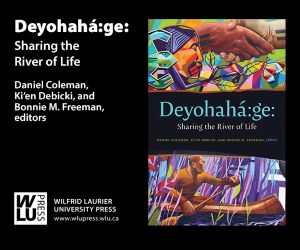(Editor’s note: On Sept. 8, 2003 Blacklock’s publisher Holly Doan interviewed diplomat Geoffrey Pearson on reminiscences of his father. The interview remains the most candid Pearson ever gave as son of Canada’s 14th prime minister. Geoffrey Pearson died in 2008 at 80. Following is a transcript of his remarks)
My father wasn’t any good as a politician. He was a scriptwriter. That’s the way he had been brought up, to write the script for others. A politician has to be a born actor and say all kinds of things you don’t really believe. He was very bad at it.
As foreign minister everything he did was applauded. There was nothing in his background that brought criticism. He had always been successful at whatever he did. And here as prime minister he had critics who said he wasn’t good at it. I heard him remark after his two minority governments, “Everybody likes me but nobody votes for me.” He couldn’t really solve that paradox.
Looking at him as a biographer, you realize it’s like examining an artichoke. You peel off layers. Sometimes you come to the core pretty quickly. With Pearson the core was always something beyond.
When he walked into a room people would not notice him. He was about medium height, 170 pounds. He didn’t have a hawk nose, he didn’t have big ears. I can say all the things he didn’t have.
He developed a kind of loose-limbed, disjointed walk. He seemed loose if not lackadaisical, then almost unfocused. For a man who was a nation’s leader, a Nobel laureate, he appeared casual.
He was brought up in a strict Methodist family. The only thing he was allowed to do on Sundays was to play sports. Nothing else. He was thin and energetic and moved very, very quickly, like an athlete does. I thought of him as a second baseman. You hit the ball to him and he knows how to make a double play – just standing around, waiting for people to hit the ball to him.
I asked him about his World War One service but he wouldn’t tell me much. He was in a medical unit. It was the easiest thing for him to join, I guess. He served in the Balkans. He had a breakdown. The term was neuralgia, or shell-shock. He called it a nervous breakdown at one stage and he took a long time to get over it. He started to stutter then.
My father had a surface affability that was very, very attractive. He was extraordinarily charming and could use charm to deflect. When he was in his 30s he was uncommonly handsome. Women were charmed by him. He was dark-haired and had a ruddy Irish-Anglo complexion. He was always smiling, which was nice. I remember he took me to a Marx Brothers movie when I was 9. He liked to laugh. That is what I remember most about him.
“Gosh” was the only swear word he ever used. It’s hardly a swear word, is it? When they phoned to tell him he had won the Nobel Peace Prize, he said: “Gosh!”








